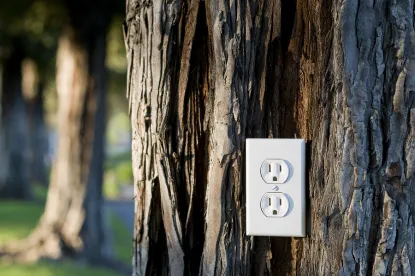As states are seeing an increase in COVID-19 cases and pausing reopening efforts, the US Environmental Protection Agency (EPA) has forged ahead with setting a definite termination date for its temporary COVID-19 enforcement policy.
On June 29, 2020, EPA’s Office of Enforcement and Compliance Assurance (OECA) Assistant Administrator Susan Parker Bodine issued an addendum to OECA’s March 26, 2020, temporary policy on enforcement discretion in light of COVID-19, adding a termination date of August 31, 2020, for the policy. Citing new federal guidelines and directives that have been issued to support health and economic recovery, such as the White House reopening guidelines and President Trump’s recent Executive Order directing agencies to remove or ease regulatory barriers to spur economic growth, Bodine concluded that termination of the EPA policy at the end of August is now appropriate.
Termination of the temporary policy will not drastically change the status quo for the regulated community. As we stated in Deciphering EPA’s Temporary Enforcement Discretion Policy for COVID-19, and contrary to other commentary surrounding the policy, the EPA temporary policy is not a free pass to pollute or a get-out-of-jail-free card, but instead offers some relief in limited circumstances. Even under the temporary policy, companies are still required to make “every effort” to comply with applicable environmental regulatory requirements. In addition, after termination of the temporary policy, EPA will continue to maintain and exercise enforcement discretion for noncompliance on a case-by-case basis, including noncompliance resulting from the COVID-19 pandemic.
The policy’s termination may, however, impact two separate challenges to EPA’s enforcement during the COVID-19 pandemic brought by environmental groups and states in the US District Court for the Southern District of New York. A group of states, led by New York, challenged EPA’s temporary policy as unlawful and beyond EPA’s authority. The parties are currently briefing motions for a preliminary injunction, which may now be viewed as largely unnecessary because the policy is terminating, and thus leaving open the question of whether EPA exceeded its authority in the first place.
The environmental groups did not directly challenge EPA’s temporary enforcement policy but instead brought a separate action seeking to compel EPA action on their petition for rulemaking under multiple environmental statutes to require all regulated entities unable to comply with EPA’s monitoring and reporting requirements because of COVID-19 to file a public justification. In defending against this action, EPA has taken the position that, among other arguments, the requested disclosure is not required by any existing statute or regulation. The parties are currently briefing motions for summary judgment but, with the EPA temporary policy terminating, the case may become moot. The environmental groups are nonetheless still arguing that disclosure of the requested documents are necessary for the public to know which companies have utilized the EPA policy and to ensure that past violations are cured and violators are held accountable.
OECA’s recent addendum is limited to its own temporary enforcement policy and does not affect temporary COVID-19 policies issued by other offices within EPA. For example, EPA’s Office of Land and Emergency Management and OECA issued an April 10, 2020, interim guidance on impacts to operations at cleanup sites due to the COVID-19 pandemic. As reopening efforts continue, we may see additional actions to terminate this and other temporary COVID-19 policies.
Despite EPA’s move to terminate its temporary COVID-19 enforcement policy, there is looming uncertainty surrounding states’ reopening, facility operations, worker shortages, and other constraints caused by this public health emergency, particularly given the current trajectory of the pandemic. Regardless, companies should continue to make “every effort” to comply with applicable environmental regulatory requirements. If you have concerns about being able to maintain compliance with your federal environmental obligations, you should consult counsel to assist in determining whether OECA’s temporary policy is still applicable and, if not, the appropriate steps to take to ensure that you will maximize the opportunity to avail yourself of EPA’s permanent, case-by-case enforcement discretion authority.








 />i
/>i

